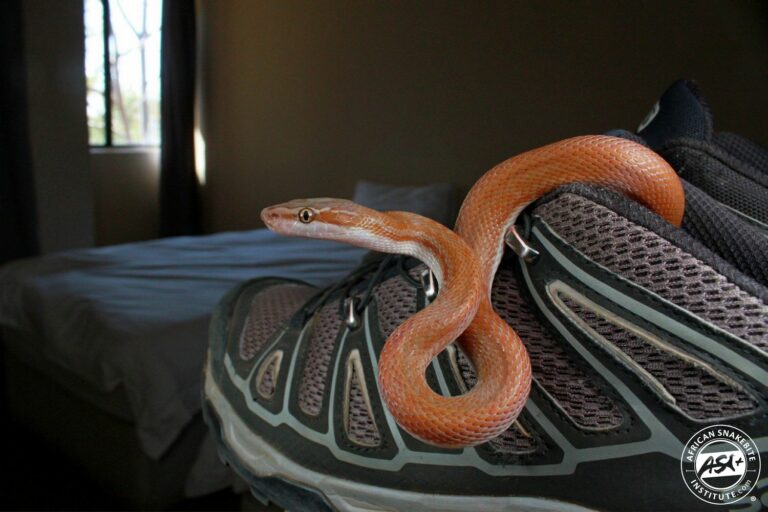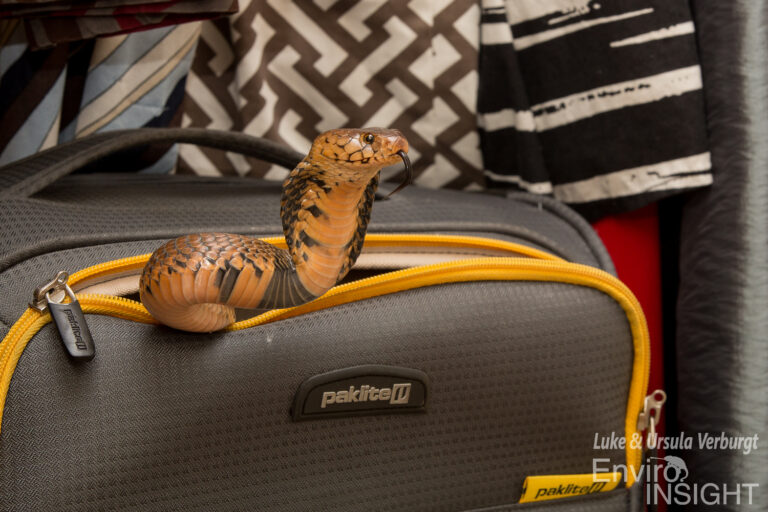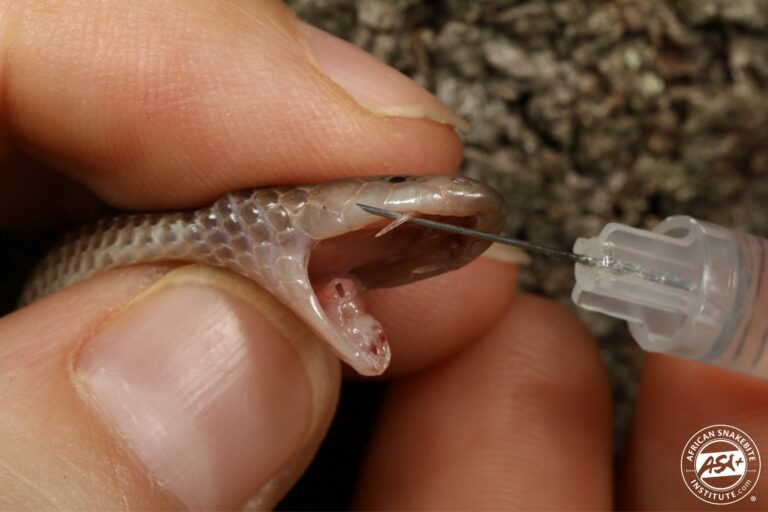Want to attend the course but can’t make it on this date?
Fill in your details below and we’ll notify you when we next present a course in this area:
As the holiday season starts, many people will be returning to their family homes or off on vacation. Snake season is in full swing with decent temperatures and sporadic rain. We are currently seeing a number of snake bites and expect this to increase as people spend more time outdoors this December.
As we discussed in the last newsletter, most snakebites that we see are generally to the foot and in the early evening. Both nocturnal (night active) and diurnal (day active) snakes will be active at dusk. We see many people walking around at dusk without torches or barefoot who accidentally step on snakes. Be careful at this time of day and utilize a torch or at least some decent shoes to reduce the chances of a snakebite.
Another situation in which people often get bitten in is whilst collecting firewood. This also applies to scorpion stings. Both snakes and scorpions often hide under logs or under the bark of dead trees. Whilst collecting firewood there is a chance that a person may accidentally touch or hurt a snake or scorpion, and they will defend themselves by biting or stinging. Be careful whilst collecting firewood or even unpacking piles of firewood.
Many people will spend the Christmas period out camping in the wilderness. Be sure to zip tents closed to avoid snakes, spiders and scorpions entering your tent. Be especially careful whilst packing up the tent as many animals will hide under the groundsheet of the tent. Remember to shake out shoes and any clothes left outside as sometimes animals may hide inside them.

If you’re staying at a bush lodge or family farm, be sure to close doors when the building is unattended or at night. In the heat of the day, many snakes will seek the refuge of a cool house. We often see this with Green Mambas on the KZN south coast and Cape Cobras in the Karoo and Cape Provinces. Spitting Cobras are also known to enter houses at night in search of food. Most buildings have a large supply of lizards, geckos, nesting birds in the roof, or rodents and this attracts snakes. The spitting cobras often enter buildings at night, and we see bites to people whilst sleeping. Be vigilant of open doors and prevent snakes from accidentally entering the building. Also ensure that doors do not have large gaps underneath. If the gap is big enough for you to push a finger through it, it is big enough for a snake to enter the house.

We often see images of people necking snakes (grabbing them behind the head) with terrible grips. If you have no training in this technique, it is very easy to make a mistake. The adders are especially good at twisting whilst being held and use their weight and muscle power to slip out of the grip and get a large fang into the hand. Other snakes like the Stiletto Snake cannot be held in a safe manner and easily bite, even whilst being held behind the head.
Avoid handling snakes if you don’t have experience or training.

Remember the free ASI SNAKES APP has a list of over 700 people across southern Africa that are qualified to remove snakes. You can use this feature to find a remover near your location. Under the First Aid section of the app there is also a section that lists all the closest hospitals to your phone’s location. In the event of a snakebite, you can use this to get to the nearest hospital.
Most snakes will move off quickly when encountered and generally only bite out if threatened. Send us images of snake you encounter via “request an ID” on the app and we will happily identify them for you. If there is a medical emergency use the Emergency tab under the First Aid section of the app to contact an emergency service or ASI directly. We hope you have you have a great holiday and new year. Stay safe.
CONTACT US:
Product enquiries:
Caylen White
+27 60 957 2713
info@asiorg.co.za
Public Courses and Corporate training:
Michelle Pretorius
+27 64 704 7229
courses@asiorg.co.za
Want to attend the course but can’t make it on this date?
Fill in your details below and we’ll notify you when we next present a course in this area:
Want to attend the course but can’t make it on this date?
Fill in your details below and we’ll notify you when we next present a course in this area:
Want to attend the course but can’t make it on this date?
Fill in your details below and we’ll notify you when we next present a course in this area:
Want to attend the course but can’t make it on this date?
Fill in your details below and we’ll notify you when we next present a course in this area:
Want to attend the course but can’t make it on this date?
Fill in your details below and we’ll notify you when we next present a course in this area:
Want to attend the course but can’t make it on this date?
Fill in your details below and we’ll notify you when we next present a course in this area:
Want to attend the course but can’t make it on this date?
Fill in your details below and we’ll notify you when we next present a course in this area:
Want to attend the course but can’t make it on this date?
Fill in your details below and we’ll notify you when we next present a course in this area:
Want to attend the course but can’t make it on this date?
Fill in your details below and we’ll notify you when we next present a course in this area:
Sign up to have our free monthly newsletter delivered to your inbox:
Before you download this resource, please enter your details:
Before you download this resource, would you like to join our email newsletter list?